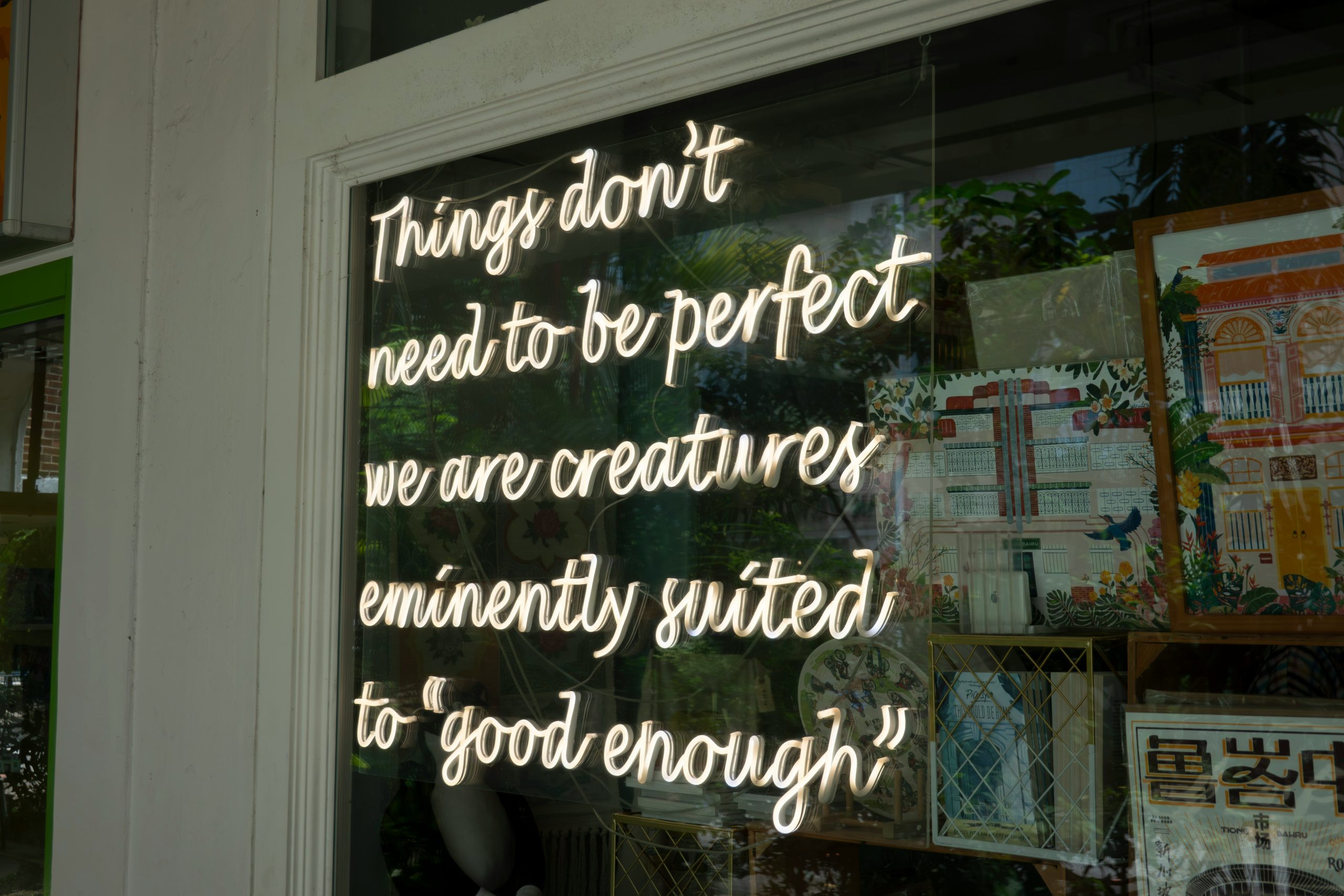Progress not perfection
"Searching for perfection is like trying to catch air" is a metaphor for the impossibility and futility of achieving a flawless, perfect state. Just as air is invisible, intangible, and constantly shifting, so is perfection an unattainable concept. This pursuit is exhausting and counterproductive, and it's often more beneficial to focus on progress, excellence and being "good enough" instead. Perfectionism is when your effort never quite counts unless it meets an unreal bar. You tie your worth to flawless performance, so small errors feel huge, and "good enough" feels like giving up. You hold yourself to standards you'd never place on a friend.
Perfection is Elusive:
- It Doesn't Truly Exist. Perfection is a myth or a perception, not a concrete reality.
- It's Subjective. What one person considers perfect, another may see as imperfect, making a universal standard impossible to achieve.
- It's Intangible. You cannot physically grasp or hold perfection any more than you can capture air.
What it can feel like:
- "If I can't do it perfectly, there's no point in trying."
- "Good enough isn't good enough."
- "Everyone else will notice if this isn't perfect."
- "If I'm not the best, I'm worthless."
- "If it isn’t perfect, I won’t be liked/loved."
Why it's a trap: Perfection promises safety: If I do it perfectly, no one can judge me, and nothing will fail. For a moment, over-preparing eases anxiety, so your brain learns to chase that feeling again. The cost is heavy: delayed projects, constant tension and anxiety, and very little joy in what you actually finish or achieve as achievements feel like failure.
Try this:
- Set a "good-enough" bar first. Ask: What would a reasonable person accept here? What would I reasonably expect from another person?
- Time for editing. Give yourself 15–30 minutes to refine, not forever, while remembering it is ok to make an error.
- Accept it is ok to make mistakes. Mistakes make us feel less than perfect, so we try to avoid them as much as we can. Instead, mistakes don’t need be avoided or feared. They help move you forward, make you interesting and help you learn and grow to become a wiser and more compassionate human.
Original thought: "I can't send this until every word is perfect. If there's one typo, I'll look incompetent."
Upgrade: "This clearly says what it needs to. A small typo won't change that, and most people would be ok with this."
If you grew up with very high standards, it makes sense that "good enough" feels risky. You're not lowering the bar; you're choosing a bar that matches reality and leaves room for learning.
What to Focus on Instead:
- Progress Over Perfection: Aim to improve and take action, even if it's messy and imperfect.
- Excellence: Strive for high standards and remarkable work, which is attainable, rather than an abstract ideal.
- "Good enough": Recognize that often, being "good enough" is a productive and realistic goal that allows for completion and growth.
- Learning from Experience: Embrace experimentation and view setbacks as opportunities to learn and grow, rather than as failures.
“Perfectionism is the enemy of progress.” – Winston Churchill
This quote by Winston Churchill succinctly conveys the notion that perfectionism hinders progress. It asserts that striving for perfection can become an obstacle to progress and growth. By highlighting the negative impact of perfectionism, the quote urges us to let go of the relentless pursuit of perfection and instead focus on continuous advancement. It encourages embracing imperfections, taking risks, and learning from mistakes as essential to making progress. By recognizing perfection as a hindrance to progress, we empower ourselves to adopt a more flexible and productive mindset. This enables us to push past limitations and achieve meaningful results.
